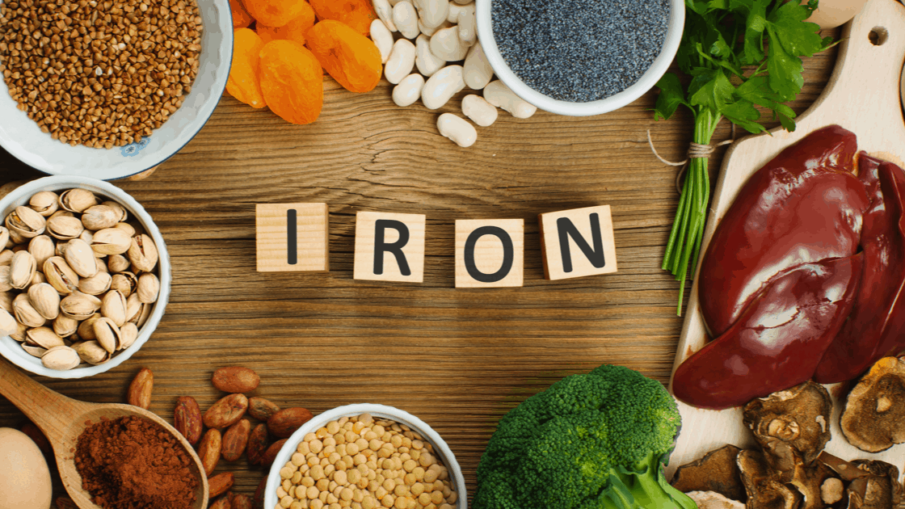So much is usually said about nutrients the body needs to function optimally, but iron is not very popular in such conversations. Unknown to most, iron is a mineral vital to the proper function of hemoglobin, a protein needed to transport oxygen in the blood, and not enough iron in the blood can lead to a range of serious health problems, including iron deficiency anemia which can cause fatigue, heart palpitations, pale skin, and breathlessness. Now that you know, these are 4 reasons why your body needs more iron.
1. Energy: Iron carries oxygen to the muscles and brain and is crucial for both mental and physical performance. Low iron levels may result in a lack of focus, increased irritability, and reduced stamina.
2. Brain/Body Detox – iron enzymes enable the brain and body to neutralize potential toxins generated in the body as well as pollutants and other toxins entering from outside the body.
3. Improves Muscle Endurance: Adequate levels of iron help provide the necessary oxygen for muscle contraction and endurance. Low iron also makes muscles fatigue easier. A lack of iron will leave muscle tissues inflamed, causing pain. Iron-rich hemoglobin helps to reduce pain, because it repairs affected tissues.
4. Reduces Bruising: People who bruise easily may be suffering from low iron or an actual iron deficiency. This is because hemoglobin affects the production and function of platelets, which control blood-clotting. Frequent bruising is an indication that internal clotting isn’t working as it should. If low iron is the cause of easy and frequent bruising, one can use iron supplements.
Examples of fruits and foods that are high in iron are red meat, organ meats such as kidney, liver etc, turkey, apples, bananas, dates, watermelons, pomegranates etc.
The role of iron in our bodies is a complex one. Iron is an essential element for blood production and supports many other bodily functions. We need to ensure we maintain optimum iron levels to function at our best.
As our bodies do not produce iron, we need to make sure we include sufficient iron as part of our healthy diets. Some peoples’ lifestyles can mean that they struggle to get the iron they need from their diet alone. Taking an iron supplement can help top up your iron levels.
Iron helps form and oxygenate our blood cells and haemoglobin. One of the most important functions of iron is in heme synthesis, which forms haemoglobin, a protein found in red blood cells. Haemoglobin’s primary role is to transport oxygen from the lungs to body tissues to maintain basic life functions. Without healthy red blood cells, your body can’t get enough oxygen, and this can result in you feeling increasingly tired or exhausted.
Iron helps convert food to energy. Iron plays a vital role in the process by which cells make energy. Human cells require iron in order to convert energy from food into ATP (Adenosine Triphosphate) and this is the body’s primary energy source. Low iron means less ATP can be produced and this is often why people feel tired and fatigued.
Iron helps maintain a normal immune system. Iron is necessary for immune cell creation and growth, which help to keep us healthy. Lower iron levels may contribute to an increased risk of our immune systems being compromised and our bodies falling sick.
Iron contributes to normal cognitive function. Cognitive function includes brain functions such as memory, concentration, learning and problem solving. Maintaining good iron levels help us to ensure our brain is performing at its best without having to rely on that shot of caffeine in the morning!



